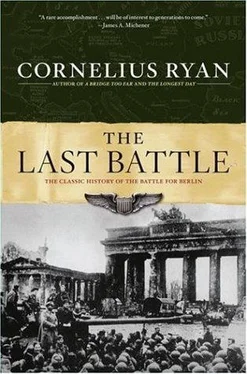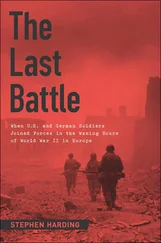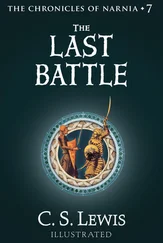Poison—particularly cyanide—was the preferred method of self-destruction. One type of capsule, known as a “KCB” pill, was in especially great demand. This concentrated hydrocyanic compound was so powerful that death was almost instantaneous—even the fumes could kill. With Germanic forethought some government agency had laid down vast quantities of it in Berlin.
Nazi officials, senior officers, government department heads and even lesser functionaries were able to get supplies of poison for themselves, their families and friends with little difficulty. Doctors, druggists, dentists and laboratory workers also had access to pills or capsules. Some even improved on the tablets’ potency. Dr. Rudolf Hückel, professor of pathology at the University of Berlin and the best-known cancer pathologist in the city, had added acetic acid to cyanide capsules for himself and his wife. If they needed them, he assured her, the acetic acid would make the poison work even faster.
Some Berliners, unable to get the quick-acting cyanide, were hoarding barbiturates or cyanide derivatives. Comedian Heinz Rühmann, often called the “Danny Kaye of Germany,” was so fearful of the future for his beautiful actress wife Hertha Feiler and their young son that he had hidden a can of rat poison in a flowerpot, just in case. The former Nazi ambassador to Spain, retired Lieutenant General Wilhelm Faupel, planned to poison himself and his wife with an overdose of medicine. The General had a weak heart. When he suffered attacks he took a stimulant containing digitalis. Faupel knew that an overdose would cause cardiac arrest and end matters quickly. He had even saved enough for some of his friends.
For others a fast bullet seemed the best and bravest end. But an astonishing number of women, mostly middle-aged, had chosen the bloodiest way of all—the razor. In the Ketzler family in Charlottenburg, Gertrud, forty-two, normally a cheerful woman, now carried a razor blade in her purse—as did her sister and mother-in-law. Gertrud’s friend, Inge Rühling, had a razor blade too, and the two women anxiously discussed which was the most effective way to ensure death—a slash across the wrists or a lengthwise slit up the arteries.
There was always the chance that such drastic measures might not have to be taken. For most Berliners there still remained one last hope. In terror of the Red Army, the vast majority of the population, particularly the women, now desperately wanted the Anglo-American forces to capture Berlin.
• • •
It was almost noon. Back of the Russian lines, in the city of Bromberg, Captain Sergei Ivanovich Golbov gazed bleary-eyed about the large living room of the luxurious third-floor apartment he and two other Red Army correspondents had just “liberated.” Golbov and his friends were happily drunk. Every day they drove from the headquarters in Bromberg to the front ninety miles away to get the news, but at the moment everything was quiet; there would not be much to report until the Berlin offensive began. In the meantime, after months of front-line reporting, the good-looking, 25-year-old Golbov was enjoying himself.
Bottle in hand, he stood looking at the rich furnishings. He had never seen anything quite like them. Heavy paintings in ornate gold frames adorned the walls. The windows had satin-lined drapings. The furniture was upholstered in rich brocaded materials. Thick Turkish carpets covered the floors, and massive chandeliers hung in the living room and the adjoining dining room. Golbov was quite sure that an important Nazi must have owned this apartment.
There was a small door ajar at one end of the living room. Golbov pushed it open and discovered a bathroom. At the end of a rope hanging from a hook on the wall was the body of a Nazi official in full uniform. Golbov stared briefly at the body. He had seen thousands of dead Germans but this hanging body looked silly. Golbov called out to his friends, but they were having too much fun in the dining room to respond. They were throwing German and Venetian crystal at the chandelier—and at each other.
Golbov walked back into the living room, intending to sit down on a long sofa lie had noticed there—but now he discovered that it was already occupied. Lying on it at full length, in a long Grecian-like gown with a tasseled cord at the waist, was a dead woman. She was quite young and she had prepared for death carefully. Her hair was braided and hung over each shoulder. Her hands were folded across her breasts. Nursing his bottle, Golbov sat down in an armchair and looked at her. Behind him, the laughter and the smashing of glassware in the dining room continued. The girl was probably in her early twenties, and from the bluish marks on her lips Golbov thought she had probably taken poison.
Back of the sofa on which the dead woman lay was a table with silver framed photographs—smiling children with a young couple, presumably their parents, and an elderly couple. Golbov thought of his family. During the siege of Leningrad his mother and father, half-starved, had tried to make a soup out of a kind of industrial oil. It had killed them both. One brother had been killed in the first days of the war. The other, 34-year-old Mikhail, a partisan leader, had been caught by the SS, tied to a stake and burned alive. This girl lying on the sofa had died quite peacefully, Golbov thought. He took a long swig at the bottle, stepped over to the sofa and picked up the dead girl. He walked over to the closed windows. Behind him, amid shouts of laughter, the chandelier in the dining room smashed to the ground with a loud crash. Golbov broke quite a lot of glass himself as he threw the dead girl’s body straight through the window.
 4
4 
BERLINERS, who almost daily shook their fists at the bombers, who, as often as not, sorrowed for family, relatives or friends lost in air raids or in the armed forces, now fervently spoke of the British and Americans not as conquerors but as “liberators.” It was an extraordinary reversal of attitude and this state of mind produced curious results.
Charlottenburger Maria Köckler refused to believe the Americans and British would let Berlin fall into Russian hands. She was even determined to help the Western Allies. The gray-haired, 45-year-old housewife told friends she was “ready to go out and fight to hold back the Reds until the ‘Amis’ get here.”
Many Berliners fought down their fears by listening to BBC broadcasts and noting each phase of the battles being fought on the crumbling western front—almost as though they were following the course of a victorious German Army rushing to the relief of Berlin. In between raids Margarete Schwarz, an accountant, spent night after night with her neighbors, meticulously plotting the Anglo-American drive across Western Germany. Each mile gained seemed to her almost like another step toward liberation. It seemed that way to Liese-Lotte Ravené, too. Her time was spent in her book-lined apartment in Tempelhof, where she carefully penciled in the latest American advances on a big map and feverishly willed the Amis on. Frau Ravené did not like to think of what might happen if the Russians came in first. She was a semi-invalid—with steel braces around her hips and running down her right leg.
Thousands were quite certain the Amis would get to Berlin first. Their faith was almost childlike—vague and unclear. Frau Annemaria Hückel, whose husband was a doctor, began tearing up old Nazi flags to use as bandages for the great battle she was expecting on the day the Americans arrived. Charlottenburger Brigitte Weber, 20-year-old bride of three months, was sure the Americans were coming and she thought she knew where they intended to live. Brigitte had heard that Americans enjoyed a high standard of living and liked the finer things of life. She was ready to bet they had carefully chosen the wealthy residential district of Nikolassee. Hardly a bomb had fallen there.
Читать дальше

 4
4 










